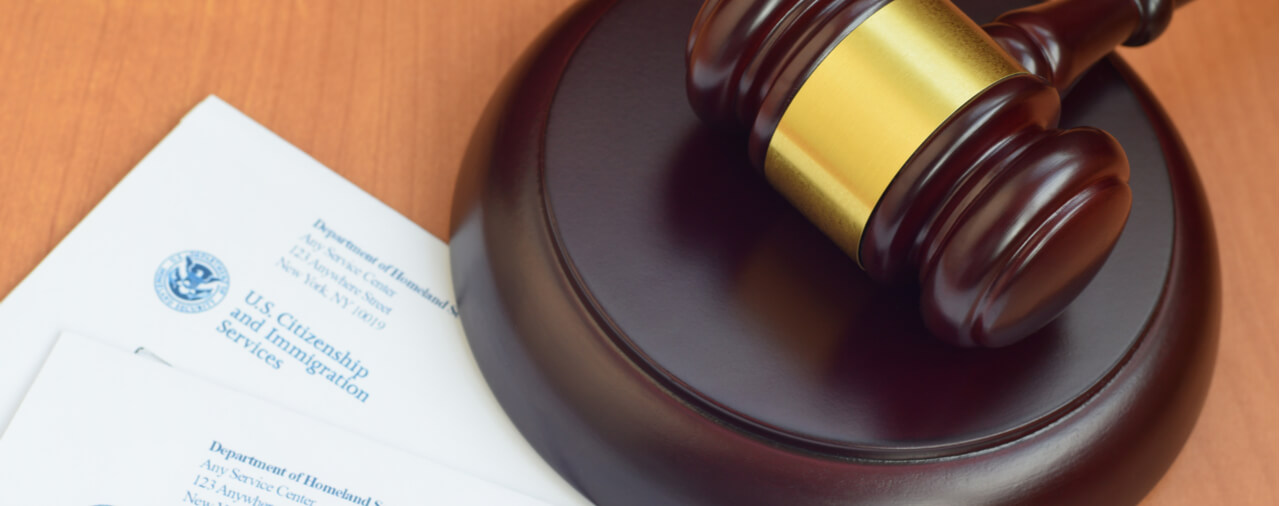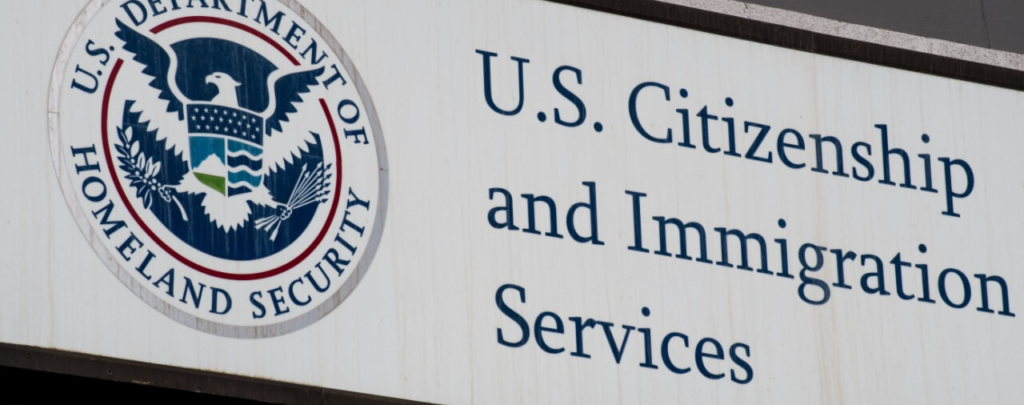What is a Provisional Unlawful Presence Waiver?
On July 29, 2016, the United States Citizenship and Immigration Services (USCIS) released new rules regarding provisional (stateside) unlawful presence waivers. These new rules will take effect on August 29, 2016. This is our article about the rules that were in effect prior to August 29, 2016. We are keeping this article on site for those who are interested in comparing the new regulations to the old regulations. To read about the rules that take effect on August 29, 2016, please see our full article [see article].
Immigrant visa applicants who are present in the United States are required to travel abroad to obtain their immigrant visa, unless they are eligible to for adjustment of status from within the United States.1 If, in their interview for an immigrant visa at a United States embassy or consulate abroad, it is found that they had previously accrued at least 180 days of unlawful presence in the United States, the applicant will be found inadmissible to the United States unless they have a waiver of inadmissibility. Most applicants may only file a Form I-601, Application for Waiver of Grounds of Inadmissibility, after first being found inadmissible to the United States in their immigrant visa interview abroad.
As of March 4, 2013, certain immigrant visa applicants who are the immediate relatives (spouses, children, or parents) of United States citizens are eligible to file a Form I-601A, Application for Provisional Unlawful Presence Waiver, before departing the United States for their immigrant visa interviews, provided that the only ground that they would be ineligible for an immigrant visa is unlawful presence.
The purpose of the provisional unlawful presence waiver is to expedite the immigrant visa application process for immediate relatives of United States citizens who would only be inadmissible to the United States due to unlawful presence. Obtaining the waiver does not alter the requirement for the recipient to depart the United States for his or her visa interview. The provisional unlawful presence waiver does not confer upon the recipient any immigration benefit or guarantee that the immigration visa application process will end successfully. If other grounds for inadmissibility to the United States are found after obtaining a waiver, the waiver will be terminated.
Rules for Eligibility for Provisional Unlawful Presence Waivers
In order to apply for a provisional unlawful presence waiver, the applicant must be:
At least 17 years of age
An immediate relative of a United States citizen, and if a child of a U.S. citizen, unmarried and under 21 years of age
Able to demonstrate that his or her refusal of admission to the United States will cause “extreme hardship” to his or her U.S. citizen immediate relative
Physically present in the United States to file the application and provide biometrics
The applicant must have:
An already approved Form I-130, Petition for Alien Relative, or Form I-360, Petition for Amerasian, Widow(er), or Special Immigrant
A pending immigrant visa case with the Department of State (DOS) for the approved immediate relative petition and have already paid the immigrant visa processing fee
Meet all of the statutory2 grounds for the waiver as well as the instructions on the Form I-601A, Application for Provisional Unlawful Presence Waiver
The applicant must not have had an immigrant visa interview for the approved immediate relative petition scheduled prior to January 3, 2013. Even if the immigrant visa applicant meets all other grounds for provisional stateside unlawful presence waiver eligibility, he or she would be ineligible if the initial immigrant visa interview was scheduled before January 3, 2013. Immigrant visa applicants in this situation must apply for a Form I-601 waiver from outside the United States.
The immigrant visa applicant must not:
Have other grounds for inadmissibility to the United States aside from unlawful presence
Have ongoing removal proceedings at the time of filing Form I-601A
Fail to satisfy any of the requirements on the Form I-601A
Rules for Filing Form I-601A
It is important when filling out a Form I-601A to carefully follow all of the instructions on the form, including using the address provided for mailing to United States Citizenship and Immigration Services (USCIS).3 Failure to follow any of the instructions may result in the application being rejected.
Filers must pay a $585 form filing fee along with an $85 biometric services fee. Applicants who are over 79-years of age do not have to pay the $85 biometrics fee. Applicants should bear in mind that the fees cannot be waived, and that failure to submit payment of the fees along with the application will result in the application being rejected.
Applicants must comply with instructions on the Form I-601A to provide evidence that they have approved immigrant visa petitions classifying them as the immediate relatives of United States citizens and to submit copies of their DOS immigrant visa fee receipts.
If applicants move after filing the Form I-601A, they should notify USCIS within ten days of their move in order that they can receive communications pertaining to their applications.
After USCIS receives the Form I-601A, it will schedule a date for the applicant to visit an Application Support Center to have his or her biometrics and biographical information taken.
After Approval of Provisional Unlawful Presence Waiver
The recipient of a provisional unlawful presence waiver must still proceed abroad for his or her immigrant visa interview. The waiver does not confer upon the recipient any immigration benefit, does not guarantee that the immigrant visa application process will end favorably, and does not guarantee reentry into the United States upon leaving.
Rules for Provisional Unlawful Presence Waiver Being Revoked
An approved provisional unlawful presence waiver will be automatically revoked if:
DOS ends the immigrant visa application process and the application is not reinstated4
USCIS revokes the approved Form I-130 or Form I-360, and it is not reinstated for humanitarian reasons or converted to a widow or widower petition
It is determined at the immigrant visa interview that the applicant is inadmissible for other reasons than the unlawful presence covered by the waiver5
The applicant reenters or attempts to reenter the United States without being inspected and admitted or paroled before or after the provisional unlawful presence waiver is approved and before obtaining an immigrant visa
If the provisional unlawful presence waiver is revoked on account of other grounds of inadmissibility aside from unlawful presence, the immigrant visa applicant may be eligible to obtain a waiver for those grounds of inadmissibility, depending on the specific grounds of inadmissibility and facts of his or her case, by filing a Form I-601.
If a Recipient of a Provisional Unlawful Presence Waiver is in Removal Proceedings
If the recipient of a provisional unlawful presence waiver is in removal proceedings, he or she should work to have the removal proceedings formally terminated by the Executive Office for Immigration Review (EIOC) prior to departing the United States for an immigrant visa interview. In order to do this, the recipient or his or her immigration representative must contact the Office of the Principal Legal Advisor at United States Immigration and Customs Enforcement (ICE) after having the Form I-601A approved. Not taking this step may result in delays in the immigrant visa application process or the finding therein of another ground of inadmissibility.
Rules for Denial or Withdrawal of Form I-601A
If a Form I-601A is rejected, the decision cannot be appealed or reconsidered. However, the applicant may file another Form I-601A after rejection, or after he or she withdraws a Form I-601A before a final decision is reached. If a Form I-601A is withdrawn, the filing fees are non-refundable.
Applicants who have their Form I-601A rejected or withdrawn it before a final decision is reached may file a Form I-601 for a traditional waiver from grounds of inadmissibility. However, immigrant visa applicant may only file the Form I-601 after attending an immigrant visa interview abroad, and having grounds for inadmissibility covered by a Form I-601 waiver found.
- See our section of articles on adjustment of status
- 8 CFR 212.7(e)
- For more rules and advise on filling out and filing Form I-601A, see http://www.uscis.gov/family/family-us-citizens/provisional-waiver/provisional-unlawful-presence-waivers [link]
- See INA § 203(g) for statute on grounds for revoking and reinstating immigrant visa applications
- See INA § 212(a)(9)(B)(i) for other grounds for inadmissibility to the United States
Resources and materials:
“Provisional Unlawful Presence Waivers.” Uscis.gov. U.S. Citizenship and Immigration Services, 4 Apr. 2014. Web. 7 July 2015. http://www.uscis.gov/family/family-us-citizens/provisional-waiver/provisional-unlawful-presence-waivers [link]





